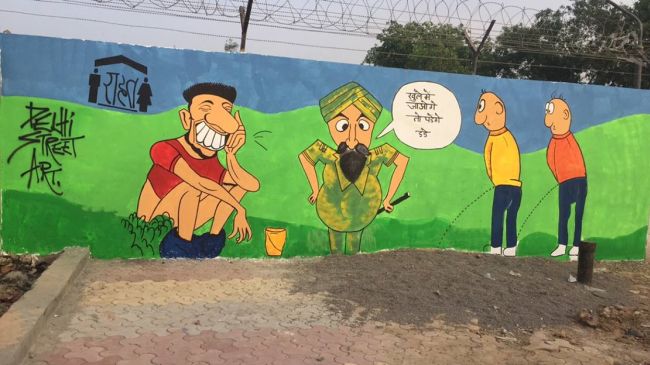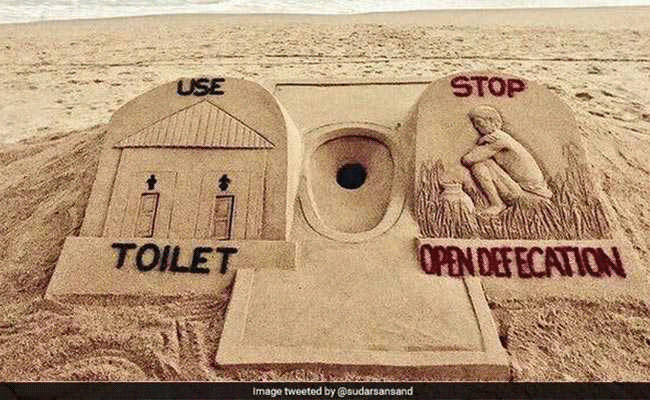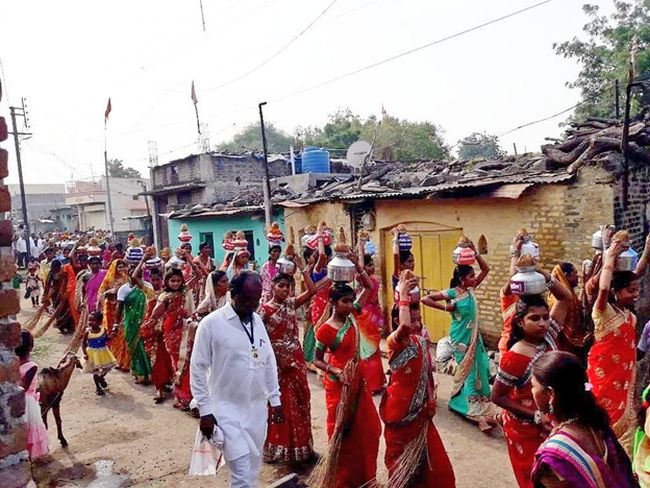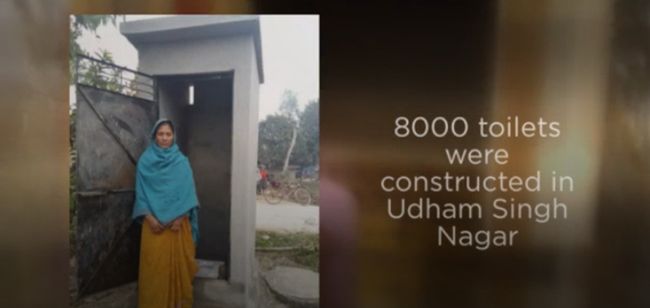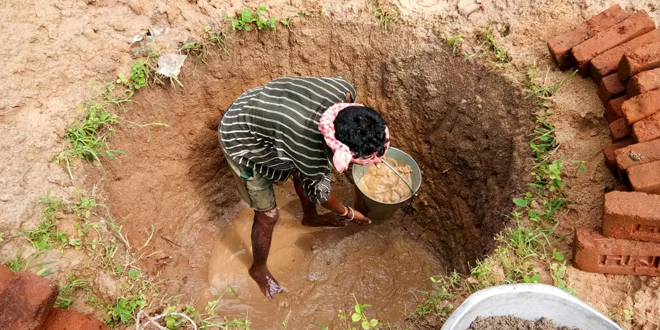New Delhi: This year January 26 marks India’s 69th Republic Day. It is a day that marks when the Constitution of India came into effect, giving people their fundamental rights like right to freedom and right to equality. Equality is what Swachh Bharat Abhiyan hopes to achieve by bridging the divide between the haves and have-nots, in this case, those who so far have not had access to something as basic as a toilet. A toilet is more than just about sanitation and hygiene, it is also about dignity and in case of women also about their security. If Swachh Bharat Abhiyan meets its target, then by October 2019, India will be free from open defecation and ensure access to toilets for all. Since its launch on October 2, 2014, by Prime Minister Narendra Modi, approximately 6 crore toilets have been constructed under Swachh Bharat Abhiyan, around 300 districts, 3 lakh villages and 10 states/Union Territories have been successful in eradicating open defecation. India’s total sanitation coverage today is at 76 per cent up from a mere 39 per cent in 2014. These numbers have been achieved on the back of a lot of effort being put in by people at all levels, right from villages to cities and from students to government officials. The Abhiyan is not just about constructing toilets, it is about behavioral change to ensure that people who have defecated in the open for so long, do not continue the practice even after they have access to toilet.
A Dash of Creativity
Just because it is about open defecation, sanitation and garbage clean up, it doesn’t have to be sermonising or boring. Some of the campaigns rolled out for Swachh broke the traditional mould of a government scheme. Some had a Bollywood twist, some were witty or quirky, and some like Bengaluru flyover clean up by a group called Ugly Indians incoporated art. Basically, an all-out effort was made to catch people’s fleeting attention span and drive home the message.
Also Read: Gabbar Is Back! This Time He’s Telling Basanti Not To Defecate In The Open
An Art Form With A Mission
When a renowned artist like Sudarsan Pattnaik, known the world over for his award-winning creations in the sand, decided to use his creativity to spread a message then everyone does sit up and take notice. Over a period of time Mr Pattnaik has been creating many such sand art installations that propagate many different aspects of the Swachh campaign, from ‘Say no to plastics’ to fighting garbage dumping at Puri beach, his artwork has covered wide-ranging issues that concern the environment. Some like the ‘Keep our sea clean’ was created on an International platform like the Singapore International Sand Sculpting Championship 2017.
Kalash Yatra To End Open Defecation
Akola, the cotton district of Maharashtra has adopted a unique way to end open defecation in their area recently. 600 villagers from there have started a Kalash Yatra, in which they will go and cover each and every corner of the district and guide people why defecating in open is a crime and how they should stop it. Through this, the district aims to go open defecation free by end of February this year.
No Tea And Haircuts For Those Who Fail To Use Toilets
With ‘Shauchalaya ka upyog karo varna chai nahi milegi’ (Tea will not be served to those who do not use their toilets) and ‘shauchalaya ka upyog karne par hi dadi and baal banayi jawegi’ (use toilet otherwise haircut and shaving won’t be done) signboards in front of their shops, two shopkeepers – Bhaga Singh (tea vendor) and Prakash Sen (hairdresser) in Rajsamand district of Rajasthan started with their Swachh mission.
The district was declared open defecation free in October 2016, however, still there were many slip backs and people were seen open defecating in their area. Concerned with this and in order to sustain their ODF status, both Bhaga and Prakash decided to act and show people that if they fail to corporate with district’s swachh mission, then they would not get certain services.
With 8,000 Toilets In 20 Days, Udham Singh Nagar Sets A National Record
In a first, Udham Singh Nagar in Uttarakhand has set a national record and had made it to the Limca Book of Records. Reason – the district constructed more than 8000 toilets in just 20 days and made it free from open defecation.
The toilets were constructed in 351 gram panchayats of the district in January 2016 and Dr Ashish Srivastava who was the chief development officer (CDO) of the district at that point of time was awarded the certificate by Limca Book Of Awards.
Gaddha Khodo Abhiyan To Achieve Open Defecation Free Status
Simdega, a district in Jharkhand started Gaddha Khodo Abhiyan in a bid to attain the open defecation free status. Under the mission, the target was to dig around 65,000 leach pits within a month, but the district achieved the mammoth task within seven days.
Simdega is the least population density district of Jharkhand and nearly 35 per cent of its area is forested. Due to poor road connectivity and communities live in scattered and hilly areas, and so the district was slow in constructing toilets and this led to the birth of this initiative.
These are just some of the initiatives India has adopted to create a ‘behavioural change’ among individuals. It may be difficult to change old habits and norms. But, using these swachh tools, our country has surely come a long way.


